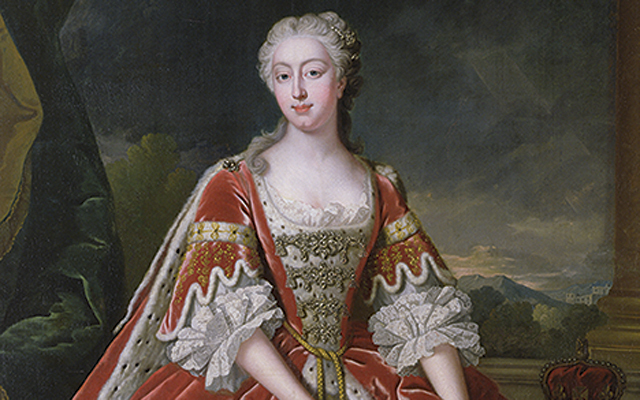Book review: The Mistresses of Cliveden
Teresa Levonian Cole reviews a fascinating journey through English social history, with Cliveden at its heart.


The Mistresses of Cliveden by Natalie Livingstone (Hutchinson, £25 *£22)
Three centuries of scandal, power and intrigue’ runs this book’s subtitle and, for these attributes, the name Cliveden resonates like no other. With its disparate cast of characters, from politicians and royals to poets and courtesans, this extensive account of five remarkable women who presided over England’s most notorious country house promises to be a page-turner. It doesn’t disappoint.
Begun in 1676 for George Villiers, the Duke of Buckingham, a close friend of Charles II, Cliveden was conceived as a bolt-hole for the Duke and his mistress, the Countess of Shrewsbury. This, however, was never to be. Reputedly ‘one of the most licentious wicked women in Restoration history’, the Countess was forcibly separated from her lover by the House of Lords in 1674.
Not until the arrival of a new chatelaine Elizabeth, Countess of Orkney, who had had a scandalous affair with William of Orange did Cliveden come into its own as a political setting. Elizabeth ‘brought a sophisticated and worldly touch… setting the tone for centuries to come’. By 1729, when George II visited, her rehabilitation from ‘royal whore’ to royal hostess was complete.
For all the fascination her characters hold, Natalie Livingstone’s work ranges far beyond their lives. Cliveden is the ship on which she navigates the choppy waters of history, through ‘Restoration and Glorious Revolution, aristocratic rise and fall, two world wars and the Cold War’, to shed light on the changing cultural, social and political mores of the times.
We learn of Alexander Pope’s influence on the creation of English-style gardens as expressions of anti-Napoleonism, of the 17th-century beauty ritual of ‘gluing black taffeta spots onto their faces’ and of the 18th-century fashion for collecting porcelain. We hear of Thomas Arne’s masque, Alfred, which was inspired by the tension between George II and his eldest son, and premiered at Cliveden under the auspices of Augusta, Princess of Wales, and we learn of the popularisation of the small-pox vaccine, which Lady Mary Wortley Montagu had come across, in Constantinople, in 1717.
In 1795, Cliveden suffered the first of two devastating fires. It was Harriet, Duchess of Sutherland close confidante of Queen Victoria and mistress of Cliveden from 1849 who presided over its resurrection on both occasions, with Charles Barry’s ‘palazzo-style’ rebuilding of the 1850s surviving today.
Exquisite houses, the beauty of Nature, and how to get the most from your life, straight to your inbox.
Active in politics and a vocal abolitionist, she would draw charges of hypocrisy from Karl Marx. Her friendship with Gladstone conflicted with the Queen’s predilection for Disraeli, ‘and yet,’ the author writes, ending the chapter in best thriller style, ‘it was not Gladstone or Disraeli, but another more exotic leader [Garibaldi], who threatened to drive a wedge between Harriet and the Queen.’
To Queen Victoria’s dismay, the house was sold to the American Astor family in 1893, to be run by the formidable Nancy: Christian Scientist, devotee of icy baths, the first woman to take a seat in Parliament and the last great chatelaine of Cliveden. Her flamboyant, complex personality is brought to life in what are perhaps the most riveting chapters, charting her social and political rise to her fall from grace, in 1945, amid allegations of anti-semitism and Nazi appeasement.
By the end of two World Wars, crippling taxes obliged Waldorf Astor to offer Cliveden to the National Trust, with the family living on in the house. It was during the time of Nancy’s son Bill Astor that the ill-fated meeting between the Secretary of State for War and the call-girl would take place. The ensuing Profumo Affair of 1963, now indelibly associated with Cliveden, cemented the house’s reputation as ‘an emblem of élite misbehaviour’.
Cliveden finally ceased to be a private house in 1968, to be reincarnated in the 1980s as a hotel, in which Nancy Astor, immortalised in Sargent’s portrait, once again welcomes guests.
The author of this fascinating book wears her scholarship lightly, her love for her subject heightened, perhaps, by her husband’s purchase of Cliveden in 2012.
* Buy The Mistresses of Cliveden in the Country Life Bookshop
To order any of the books reviewed or any other book in print, at discount prices* and with free p&p to UK addresses, telephone the Country Life Bookshop on 0843 060 0023 or visit www.countrylife.co.uk/bookshop. Or send a cheque/postal order to the Country Life Bookshop, PO Box 60, Helston TR13 0TP. For overseas readers, telephone 01326 569444 or email sales@sparkledirect.co.uk * See individual reviews for CL Bookshop price.
Country Life is unlike any other magazine: the only glossy weekly on the newsstand and the only magazine that has been guest-edited by His Majesty The King not once, but twice. It is a celebration of modern rural life and all its diverse joys and pleasures — that was first published in Queen Victoria's Diamond Jubilee year. Our eclectic mixture of witty and informative content — from the most up-to-date property news and commentary and a coveted glimpse inside some of the UK's best houses and gardens, to gardening, the arts and interior design, written by experts in their field — still cannot be found in print or online, anywhere else.
